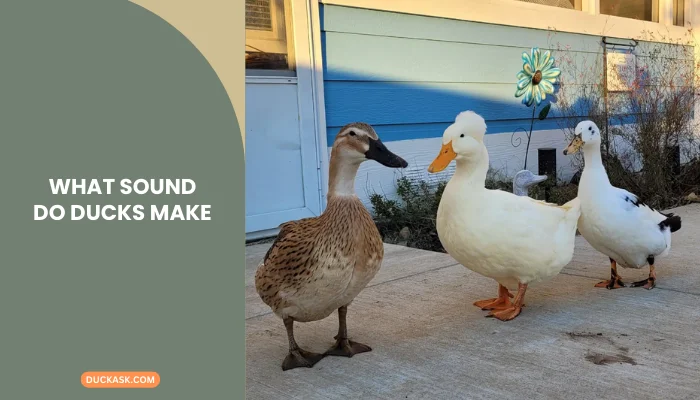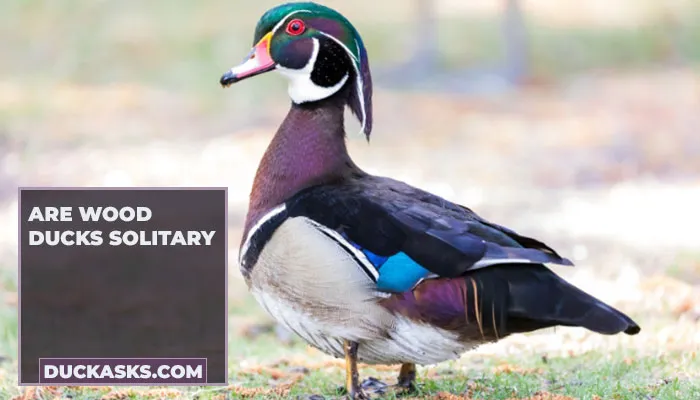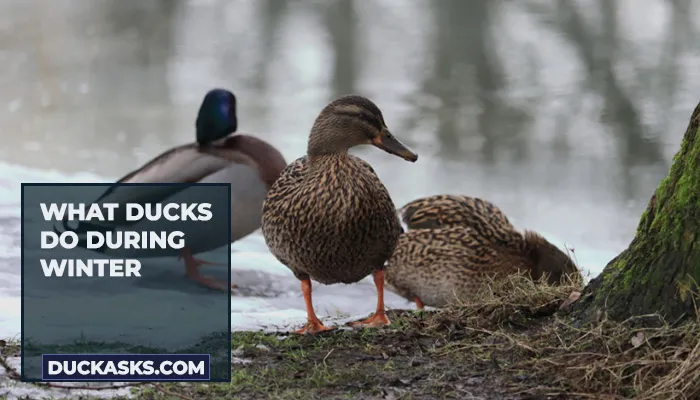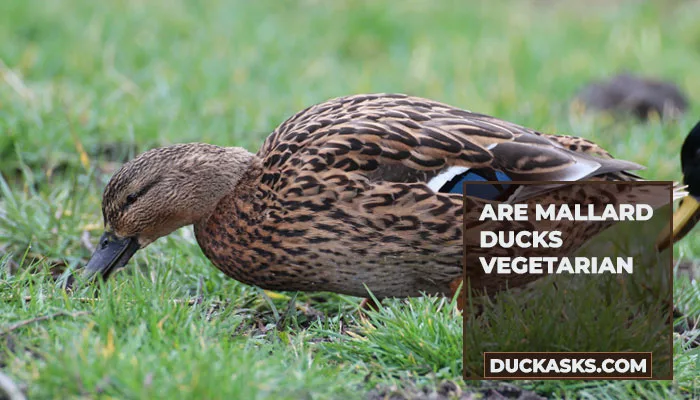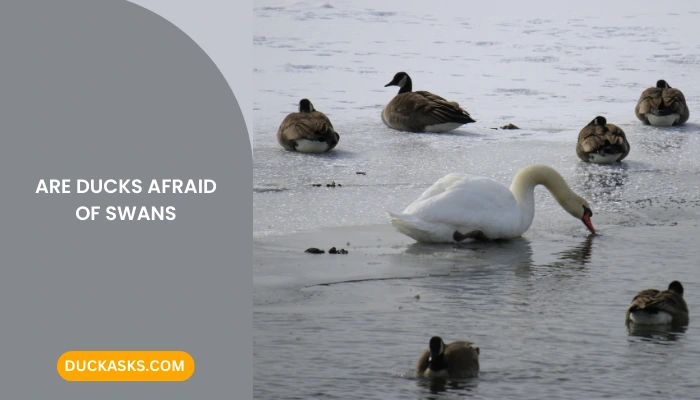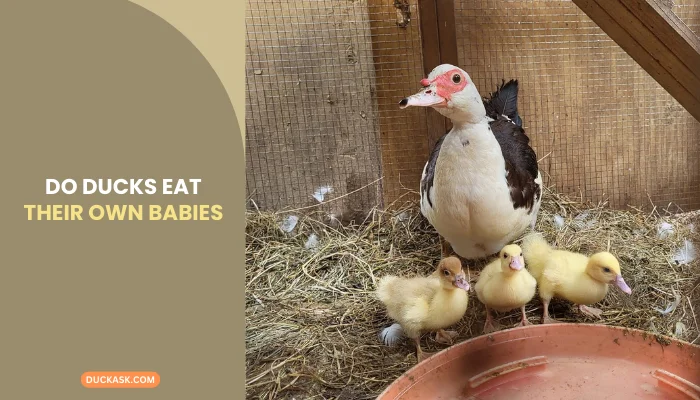Do Ducks Like Cold Weather?
Birds usually hate cold weather. Shortage of food supply, temperature too low for their fragile little body, and challenging to nurture babies.
But we never see ducks that bothered by the low temperature. Weird but fascinating at the same time. This can make anybody curious, do ducks like cold weather? Unlike most other birds, ducks actually prefer cold weather more than warm summer days unless the weather is too harsh to tolerate.
Yes, many ducks do migrate to the south during the winter, but that doesn’t take away from the fact that they do better in low temperatures than most other birds.
Reading this article further below might help you understand better how ducks feel about cold weather.
Looking for more articles about ducks habit:
Do All Ducks Like Cold Weather?
Most ducks like cold weather. Muscovy, Khaki Campbell, Indian Runner, American Pekin, Blue Swedish, Welsh Harlequin, Call, Cayuga, Orpington, and Silver Appleyard are breeds famous for tattering around in the cold days.
Tiny or big, these birds come packed with muscle and fat to fight the low temperature.
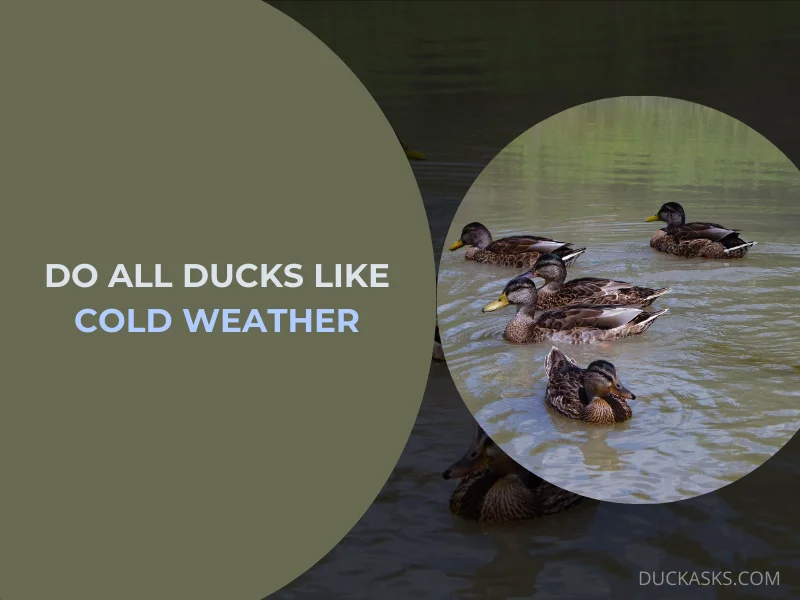
You’ll even spot some of them walking in flocks on snow without a worry in the world. For those that migrate to the south, most of them fly in search of food and water source.
Very few breeds leave the northern regions for the sole purpose of protecting ducklings or themselves.
What Helps Duck Stay Well in the Winter?
Ducks do well in the winter as long as the temperature is bearable. In fact, most duck breeds enjoy winter the most when they have a warm place to stay in and they’re given food and an open source of water.
They are physically cold hardy birds, but several factors do weigh on the well-being of the ducks during winter, as follows –
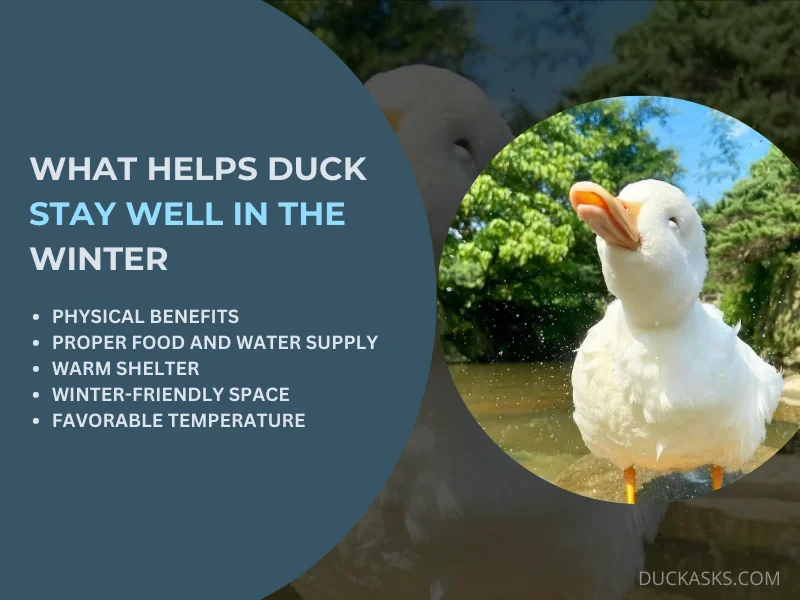
Physical Benefits
Ducks have a thick layer of fats under their skin to keep the temperature balanced on water. This comes in handy to keep the birds warm during the winter. Thicker the layer, they seem to thrive more as the temperature drops.
They spread the sebum from their preen glands all over the feathers to keep them oily and waterproof. This protects the ducks from getting wet and also doubles as a shield against low temperatures.
Besides, the down feathers at the bottom are adjusted in a fitting manner to keep the bottom insulated from the cold.
What about the legs that aren’t protected by the feathers? Most arteries and veins in a duck’s body are close to their legs.
As the feet start to soak up the low temperature from the ground, it gets exchanged with the warm blood from the arteries in the legs, keeping them warm enough to stand on the surface.
Proper Food and Water Supply
To survive the winter, ducks need some change in their food habit. They can’t gather their food out in the wild as everything either dies out or gets buried under the snow.
This is why domestic ducks do better in this season, and many breeds migrate to warmer regions.
As a human, we can always help the ducks with their wintertime food issue. The core reason ducks tend to hang around humans in these times. Winter is pretty fun for the ducks with the proper selection of feed, protein, fat, and vegetables.
High-calorie food like cracked corn, peanut, or oatmeal does wonders to increase the fat layer under the skin and keep the body warm by working the organs the whole day.
Kale, chards, turnip, beetroot, and cabbages are some of the vegetables ducks must have in their winter diet. Taking nibbles from cabbage or beetroot can be a fun activity for ducks on days they can’t go outside.
It’s hard to provide natural animal or insect-based protein during winter. Luckily, duck feeds take care of that proportion.
Apart from food, make sure they have a water source that’s drinkable and not already frozen. It’s wise to either insulate the water bowl with straws or place it over a heated bath to keep the drinking water warm for extended periods.
Warm Shelter
Ducks aren’t picky about their living condition. They won’t mind napping on the floor of a chicken coop if the environment is decent.
Insulate the floor and every corner of the shelter with several heavy layers of straw for the utmost level of warmth and you’re golden.
It’s better if the coop is heated with an electric connection or something similar. You have to avoid a flammable option for the sake of plaque and straw insulation.
The coop walls have to be ventilated for the nighttime. As ducks make the space moister with breathing, it gets uncomfortable and colder after a while with all the walls sealed shut.
Winter-Friendly Space
Although ducks spend most of their winter days inactive, you have to create a winter-friendly space for whenever they feel like walking around.
Keep a part of the coop open and cover it with turf so that they can walk even on windy days. Spread some straw on the walking space to keep the legs protected from the cold ground.
Favorable Temperature
Ducks do fine in temperatures as low as 20 degrees Fahrenheit without any external aid. Some ducks can even survive below zero degrees.
We’re discussing adult ducks, though; ducklings need the temperature to be around 80 degrees at least in order to survive. As mentioned before, the thicker the layer, the lower temperature they can bear.
Do Ducks Prefer Cold Weather?
Ducks prefer cold weather over warm days. They are not a big fan of direct sunlight, and you’ll always find them from time to time resting in the shadow on hot summer days.
Although it’s easier to swim in water or walk around, the thick layer of fat under the skin keeps the ducks from enjoying the warmth like other birds.
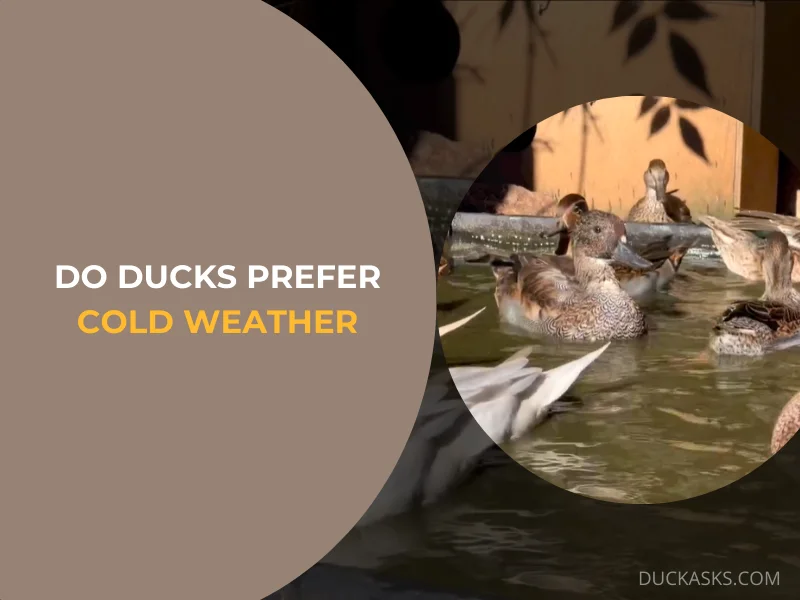
Preening helps with keeping the feathers from getting drenched in water but doesn’t help much under the heat of the sun. And then comes the moisture ducks emit at night while breathing.
Without proper ventilation in the coop, it’s the ultimate sticky nightmare for the waterfowls during summer nights.
Why Ducks Enjoy Cold Weather?
It feels weird that ducks like the cold weather better, even though they struggle with food and open water sources. This is major because of the way their body responds to the temperature.
The body of waterfowl is built differently to adapt to the temperature of wetness and water, and that’s why they do better when the temperature is low.
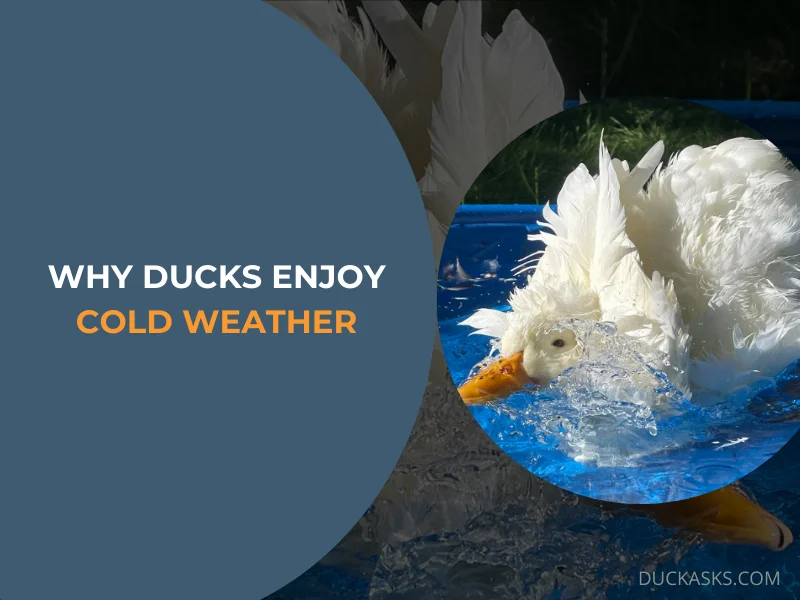
They have enough feather insulation to keep them from feeling the chill. The arteries close to the legs help balance the body temperature with the surface.
If you provide them with all the necessary nutrients, an open water source, and a straw-insulated coop to live in, these birds don’t need anything else to get through the cold weather.
Conclusion
It’s great that you are concerned about do ducks like cold weather or not. No matter how well-prepared waterfowls are, the situation can always get a bit harsher for the poor souls.
This is where you come in; with a little attention to their needs, you can easily help the ducks around you to get through the next winter.
But it’s fascinating how different ducks are compared to other birds in cold weather, isn’t it?
To learn more about this brilliant bird, check out all the related articles on our site. For future updates, follow us on Facebook, Twitter, and Pinterest.
Image Credits:
- Facebook.com/dustyotterduck
- Instagram.com/phnatk

